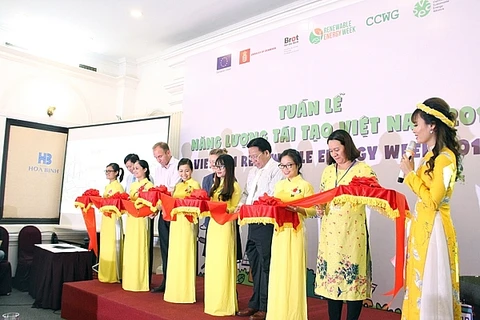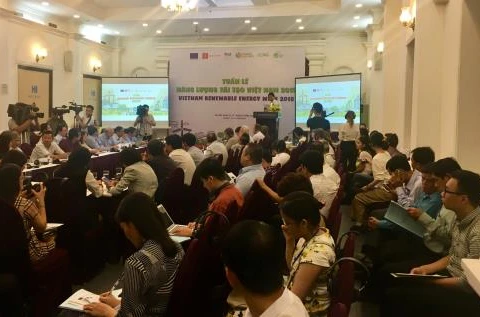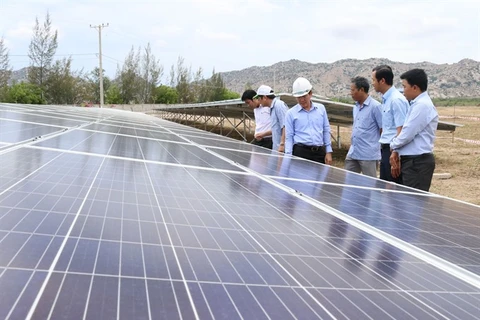Hanoi (VNA) – Vietnam Renewable Energy Week 2019 was launched in Hanoi on September 17 as part of efforts to implement the Government’s policies on renewable energy development.
The event, which is running in Hanoi and the Mekong Delta province of An Giang from September 17 to 20, is jointly organised by the Vietnam Sustainable Energy Alliance (VSEA), Vietnam Climate Action Alliance (VCCA) and the Working Group on Climate Change (CCWG).
The week’s theme focuses on opportunities, challenges and lessons from international users in the energy transition in Vietnam.
This year’s event aims to create a forum for information exchanges and multi-stakeholder dialogue to put forth solutions to achieving equal transition of energy and bringing the greatest benefits for sustainable development in Vietnam.
The week will feature three main workshops, namely “energy transition in Vietnam”, “green finance for renewable energy in industrial sector in Vietnam”, and “sustainable energy transition: opportunities and challenges for the Mekong Delta.”
Vietnam is moving along with the global trend in energy transition as renewable energy is acknowledged to be the most important and effective solution to climate change. The adjusted 7th national electricity plan aims to raise the percentage of renewable energy in the national electricity generation to 7 percent in 2020, and 10 percent by 2030.
During the past two years, the government has issued a series of support mechanisms and incentives for the development of renewable energy, such as preferential prices for solar and wind power.
As a result, Vietnam has made significant strides in developing renewable energy in recent years, particularly solar power, turning the country into one of the most dynamic and attractive renewable energy markets in the Southeast Asian region.
As of July this year, solar and wind energy has accounted for more than 9 percent of the national electricity generation, surpassing the target for 2020. The total capacity of solar power plants in the country has reached 4,543.8 MW and that of wind power plants 626.8 MW.
However, this rapid development is also posing new challenges for the development of the national grid system, land usage, electricity pricing mechanism, human resources, employment and financial resources./.
VNA























